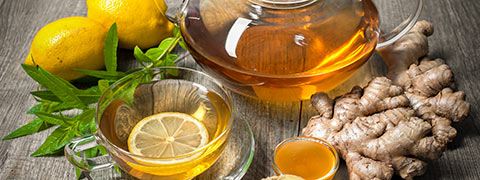 Fever, often a symptom of various infections and illnesses, can be managed effectively with the help of natural remedies derived from herbal plants. These plants not only assist in lowering body temperature but also provide additional benefits to support overall health and immune function. Here’s a detailed look at some commonly used herbal plants for fever relief:
Fever, often a symptom of various infections and illnesses, can be managed effectively with the help of natural remedies derived from herbal plants. These plants not only assist in lowering body temperature but also provide additional benefits to support overall health and immune function. Here’s a detailed look at some commonly used herbal plants for fever relief:
Basil (Tulsi)
Basil, also known as Tulsi in Ayurvedic medicine, is celebrated for its medicinal properties. It contains essential oils such as eugenol, which exhibit antimicrobial and anti-inflammatory properties. Tulsi helps in reducing fever by promoting sweating, which aids in cooling the body. It also supports immune function, helping the body fight off infections causing the fever.
Ginger
Ginger has been used for centuries in traditional medicine for its potent anti-inflammatory and antiviral properties. It is effective in reducing fever by inducing sweating and lowering body temperature. Ginger also aids in digestion and can alleviate nausea and headaches often associated with fevers.
Peppermint
Peppermint contains menthol, which provides a cooling sensation and helps soothe fever discomfort. It is known for its antispasmodic properties, relieving muscle aches and reducing fever-related headaches. Peppermint tea is a popular remedy for fever, promoting relaxation and aiding in temperature regulation.
Echinacea
Echinacea is a powerful immune-boosting herb that stimulates the body's defense mechanisms. It enhances the production of white blood cells and antibodies, helping the body fight off infections causing fever. Regular use of Echinacea can shorten the duration and severity of fever episodes.
Elderflower
Elderflower is known for its anti-inflammatory and diaphoretic (sweat-inducing) properties. It helps reduce fever symptoms by promoting sweating, which assists in lowering body temperature. Elderflower also supports respiratory health, making it beneficial for fever associated with colds and flu.
Catnip
Catnip is a mild sedative herb that promotes relaxation and induces sweating. It helps in reducing fever by facilitating the release of heat through sweat glands. Catnip tea is commonly used to alleviate fever symptoms and promote restful sleep during illness.
Yarrow
Yarrow is a versatile herb known for its ability to stimulate circulation and induce sweating. It supports fever reduction by assisting the body in regulating its temperature. Yarrow also has antimicrobial properties, aiding in combating infections that lead to fever.
Preparation and Usage
These herbal plants can be consumed in various forms:
- Tea: Steep fresh or dried herbs in hot water to make soothing teas.
- Infusion: Create herbal infusions by steeping herbs in oil or alcohol for topical application or ingestion.
- Tincture: Alcohol-based extracts that preserve the medicinal properties of herbs for long-term use.
Considerations
While herbal remedies can be effective in managing fevers, it is essential to consult a healthcare professional before use, especially if you have underlying health conditions, are pregnant, or are taking medications. Monitoring fever symptoms and seeking medical advice for persistent or severe fevers is crucial for appropriate diagnosis and treatment.









